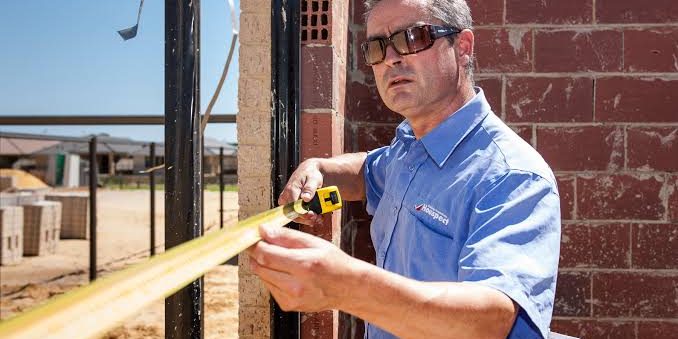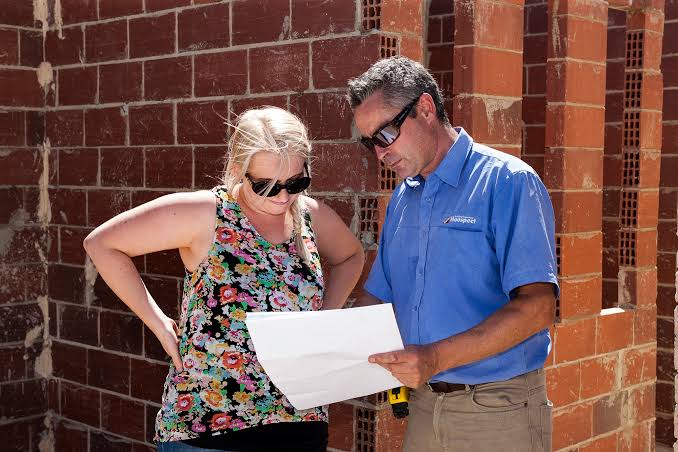Buying a home is a significant investment and ensuring that it’s structurally sound and free from major issues is crucial. Home inspections play a pivotal role in this process. Whether you’re a first-time homebuyer or a seasoned investor, understanding the ins and outs of a home inspection can save you time, money, and future headaches. In this guide, we’ll cover everything you need to know about home inspections in NSW, including questions to ask, mandatory fixes, and what to expect during the inspection process.
What is a Home Inspection?
A home inspection is a thorough examination of a property’s condition, typically conducted by an inspector (all of the inspectors at Houspect NSW are qualified builders). The purpose is to identify any existing or potential issues with the property, ranging from structural concerns to safety hazards. Home inspections are commonly conducted before purchasing a property to ensure buyers are fully aware of its condition.
Questions to Ask the homeowner or agent prior to your formal inspection.
1. Can you walk me through the major systems of the house (electrical, plumbing, heating, venting & Air con *HVAC*)?
2. Are there any known issues with the roof, foundation, or structural integrity of the property?
3. Has the property ever experienced water damage or mould issues?
4. Are there any recent renovations or repairs that I should be aware of?
5. What appliances and fixtures are included in the sale, and are they in good working condition?
6. Are there any zoning restrictions or building code violations I should know about?
7. How old is the property, and what is the condition of its major components (e.g., roof, HVAC system)?
8. Have there been any past termite infestations or treatments on the property?
9. Are there any potential safety hazards, such as lead paint or asbestos?
10. Can you provide recommendations for ongoing maintenance and upkeep of the property?
What Fixes are Mandatory After a Home Inspection?
When purchasing a home, there is no legal requirement that a vendor must rectify or fix any findings from your report. As a purchaser, you have the choice to withdraw from the sale (prior to your cooling off period expiring) or you can renegotiate the sale price to reflect the cost of any repairs.
Some items that you should consider and ensure they are repaired as soon as possible are outlined below.
1. Structural defects: Any issues with the foundation, load-bearing walls, or roof structure typically require immediate attention.
2. Safety hazards: Hazards such as faulty wiring, gas leaks, or unstable staircases must be addressed to ensure the safety of occupants.
3. Water damage: Water intrusion, mould growth, and plumbing leaks should be remediated to prevent further damage and health risks.
4. Pest infestations: Termite damage or other pest infestations may require treatment and repairs to prevent further damage to the property.
5. Code violations: Any violations of building codes or zoning regulations may need to be corrected to comply with local laws and regulations.
What to Ask During a Home Inspection:
During the home inspection process, it’s essential to ask questions and seek clarification on any issues or concerns that arise. Some key questions to consider asking your inspector include:
1. Can you explain the significance of this finding and its potential implications?
2. Are there any immediate safety concerns that need to be addressed?
3. What are the potential long-term consequences if this issue is not resolved?
4. Are there any preventative measures I can take to mitigate future issues?
5. Are there any additional tests or inspections you would recommend based on your findings?
6. How urgent is it to address this issue, and is it likely to worsen over time?
7. Are there any alternative solutions or options to consider for addressing this issue?
How Long Should a Home Inspection Take?
The duration of a home inspection can vary depending on factors such as the size and condition of the property, as well as the thoroughness of the inspection. On average, a typical home inspection may take anywhere from two to four hours to complete. However, larger, or more complex properties may require additional time. It’s essential to allow sufficient time for the inspector to conduct a thorough examination of the property and address any questions or concerns you may have along the way.
A home inspection is a critical step in the home buying process, providing valuable insights into the condition of the property, and helping buyers make informed decisions. By asking the right questions, understanding mandatory fixes, and knowing what to expect during the inspection, you can navigate the process with confidence and peace of mind. Whether you’re purchasing your first home or adding to your investment portfolio, a thorough home inspection is an essential investment in your future.
With all our ‘How to Blogs’, we recommend that you use this as a guide only and do further research by visiting the HIA website. The HIA Website provides expert knowledge in all areas of building and home renovation.







